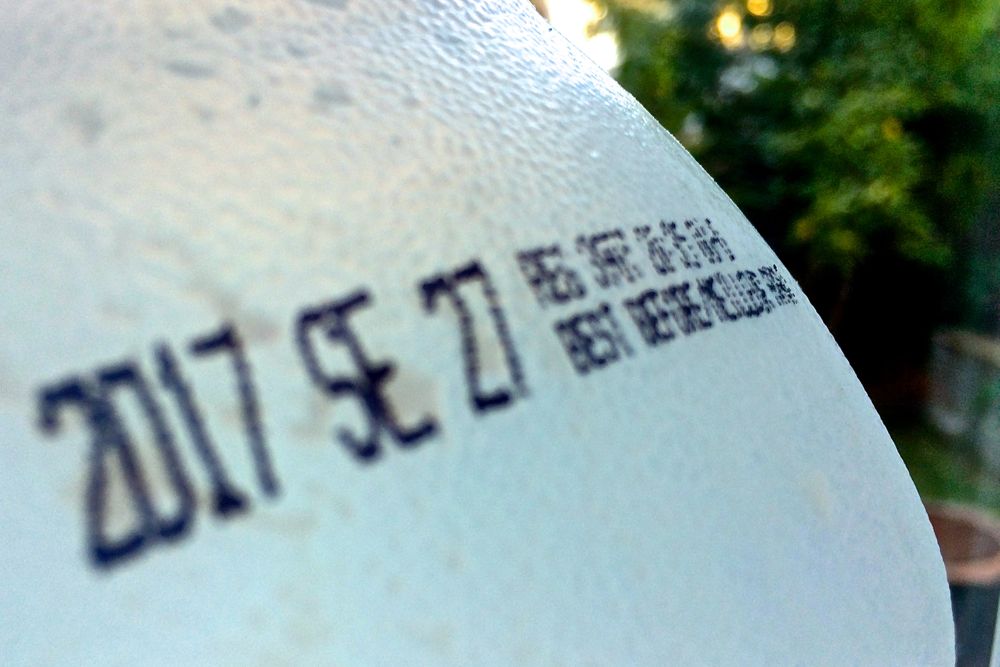New York | Thomson Reuters Foundation — Some of the world’s largest consumer goods companies, including Kellogg and Wal-Mart, said on Wednesday they will simplify food expiration labels in an effort to eliminate confusion that contributes to food waste.
Standardized labeling will use a single expiration date on perishable items and a single quality indicator for non-perishable items, the Consumer Goods Forum (CGF) announced.
Confusion over expiration labels costs families up to US$29 billion annually in the U.S. alone, according to CGF, which represents some 400 of the world’s largest retailers and manufacturers from 70 countries.
Read Also

Agropur cheese plant workers take deal, halt strike
Milk delivery to a major cheese plant in Eastern Canada is expected to resume soon as unionized employees at dairy…
According to the United Nations’ Food and Agriculture Organization, there is enough food to feed the world’s population but one third is wasted.
Labels now in use such as “Sell by,” “Use by” and “Best before” were developed beginning in the 1960s to increase consumer safety but have multiplied, Ignacio Gavilan, a CGF spokesman, told the Thomson Reuters Foundation.
“Now we have the 12 or 15 expressions that we have today,” he said.
Since most countries have no laws regulating labeling, its arbitrary use by companies has led to widespread confusion among consumers, experts say.
“The tendency of the consumer is if they get confused, they throw it away,” said Gavilan.
“There may be two dates and one of them is close, so they just say ‘Well, why risk getting sick?'”
Consumers account for some 40 per cent of the world’s food waste, Gavilan said.
Simplified, consistent date labeling will help companies halve food waste by 2025, said Peter Freedman, CGF managing director.
Under the new plan, only two labels — “Best if used by” for non-perishable items and “Use by” for perishable ones — will be used by CGF members by 2020.
Feedback, a London-based environmental group, hailed the “level of ambition” shown by Tesco and other companies in the CGF.
“Tesco’s announcement marks an important first step in making significant inroads in the global fight against food waste, and we call on all supermarkets to follow suit and reduce supply chain food waste,” said Carina Millstone, Feedback’s executive director, in a statement.
The CGF includes most of the world’s consumer goods giants from Campbell Soup to Nestle and Unilever. Canadian members include Egg Farmers of Canada, McCain Foods, Loblaws, Sobeys, Overwaitea, the North West Company and Longo Bros.
A report last year by ReFED, a non-profit that works with companies to cut food waste, said standardized labeling was one of the most cost-effective ways to address the issue.
“This low lying-fruit of date labeling standardization is exactly the type of solution that everyone can agree is fairly low-effort, cost-effective and has a positive impact on reducing consumer confusion which ultimately helps to reduce food waste,” Eva Goulbourne, a ReFED spokeswoman, told the Foundation.
The announcement was made at an event held by Champions 12.3, a group established to promote the U.N.’s Sustainable Development Goal (SDG) of cutting food waste and losses by 2030.
— Reporting for the Thomson Reuters Foundation by Sebastien Malo in New York and Uday Sampath in Bangalore. The Thomson Reuters Foundation is the charitable arm of Thomson Reuters, covering humanitarian news, women’s rights, trafficking, property rights, climate change and resilience. Includes files from AGCanada.com Network.


















